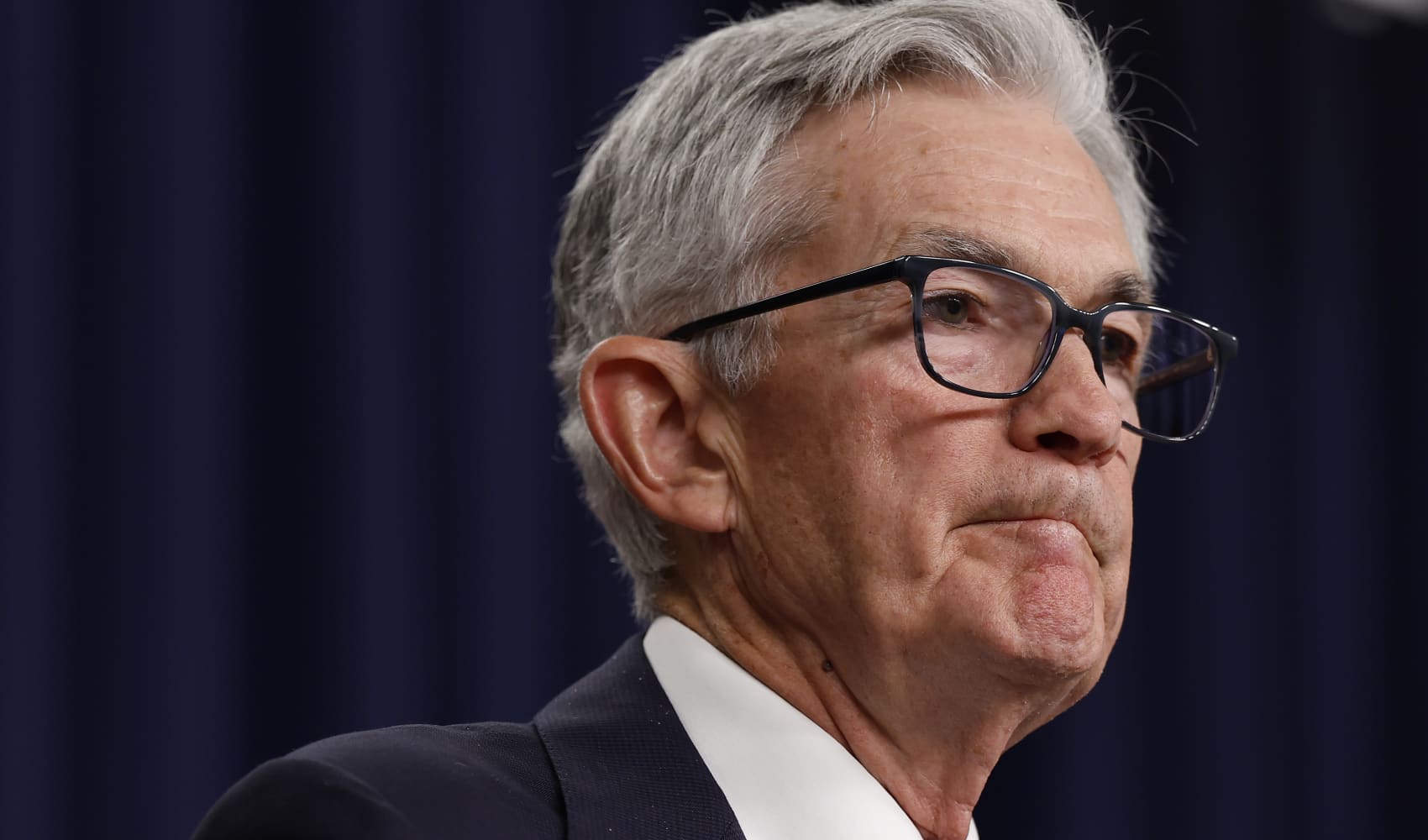
- The Bank of England's Monetary Policy Committee voted by 8 to 1 to hold, with the dissenting member voting for a 0.25 percentage point cut.
- Kyle Chapman, foreign exchange analyst at Ballinger Group, said the BOE delivered a "more decisive and more hawkish vote than expected" with the 8 to 1 vote split, supporting U.K. government bond yields and lifting sterling.
- The central bank also voted to reduce its stock of bonds by £100 billion ($133 billion) over the next 12 months through active sales and the maturation of bonds.
LONDON — The Bank of England on Thursday said it would hold interest rates steady following its initial cut in August, even after the U.S. Federal Reserve opted for a jumbo rate cut the day before.
The Monetary Policy Committee voted by 8 to 1 to hold, with the dissenting member voting for another 0.25 percentage point reduction.
A "gradual approach" to monetary easing remained appropriate, with services inflation staying "elevated," the committee said. The U.K. economy, which has exited a recession but recorded sluggish growth this year, is expected to return to an underlying pace of around 0.3% growth per quarter in the second half, it added.
Get top local stories in Philly delivered to you every morning. Sign up for NBC Philadelphia's News Headlines newsletter.
The MPC was assessing a mixed bag of data in making its rate decision, with headline inflation consistently coming in near its 2% target but price rises in services — accounting for around 80% of the U.K. economy — ticking higher to 5.6% in August. Wage growth in the U.K. cooled to a more than two-year low over the three months to July, but remained relatively high at 5.1%.
The British pound was bolstered by the BOE and Fed announcements, trading up 0.72% against the U.S. dollar at $1.3306 at 12:10 p.m. London time Thursday. That was the highest rate since March 2022, according to LSEG data.
Global equity markets meanwhile rallied Thursday, with the pan-European Stoxx 600 index 1.45% higher.

Also being monitored Thursday was the BOE's annual announcement on the pace of quantitative tightening, or QT. The central bank voted to reduce its stock of U.K. government bonds – known as gilts – by £100 billion ($133 billion) over the next 12 months through active sales and the maturation of bonds.
Money Report
That amount was in line with the prior period, against the expectation of some for an acceleration of the program. The BOE's balance sheet swelled during the pandemic as it sought to boost the economy, before it reversed course and began QT in February 2022.
The BOE sustains losses on its QT program, subsidized by the taxpayer, because bonds are being sold for lower prices than they were bought for. However, BOE Governor Andrew Bailey contends the central bank needs to conduct QT now to have space to undertake more quantitative easing or other operations in the future.
Fed influence
The BOE confirmed expectations for a hold even after the U.S. Federal Reserve on Wednesday kicked off its own rate cuts in the current cycle with a 50 basis point reduction. Many strategists had expected a smaller 25 basis point trim at the September meeting, despite market pricing through this week pointing to a more than 50% probability of the aggressive option.
Fed Chair Jerome Powell told a news conference the central bank was "trying to achieve a situation where we restore price stability without the kind of painful increase in unemployment that has come sometimes with this inflation." Recent U.S. labor market data had sparked concerns about the extent of the slowdown in the world's largest economy.
The MPC's decision was likely locked in at about midday Wednesday, ahead of the Fed's announcement, but central bankers around the world will now be assessing what the move means for global economic growth and financial conditions.
Kyle Chapman, foreign exchange analyst at Ballinger Group, said the BOE delivered a "more decisive and more hawkish vote than expected" with the 8 to 1 vote split, supporting gilt yields and lifting sterling.
"This is a cautious decision which reflects the fact that the Bank of England is simply not in as fortunate a position as the Federal Reserve with regards to inflation. ... That said, this meeting reads rather like a lead up to a cut in November, and a continued quarterly pace thereafter."
The Bank of England lowered its key rate to 5% from 5.25% in August in a tight 5 to 4 vote, and was widely expected to hold them there until its next meeting in November.
Deutsche Bank's chief U.K. economist, Sanjay Raja, reiterated a call for one more rate cut this year, taking the bank rate to 4.75%, followed by four quarter-point reductions through 2025. "We see risks skewed to a faster dial down of restrictive policy in the near-term," Raja added.
Frederik Ducrozet, head of macroeconomic research at Pictet Wealth Management, said regarding the QT program that the Bank of England was "stuck between a rock and a hard place and that's because of the choice they made in the past," and that it was the only central bank in the world that was recording these types of losses.
The U.K.'s new Labour government is due to deliver its first budget in October. Extending passive and active QT into next year will create "problems for fiscal policy, at least it doesn't make the government's job easier," Ducrozet told CNBC's "Street Signs Europe" shortly ahead of the decision.
Keeping the rate of QT unchanged, as the BOE opted to do, provided somewhat of a "middle ground," he added.






